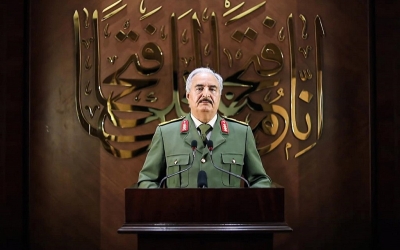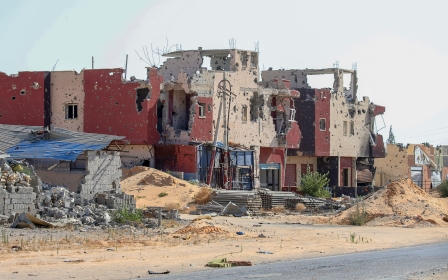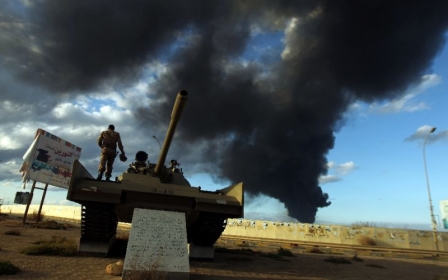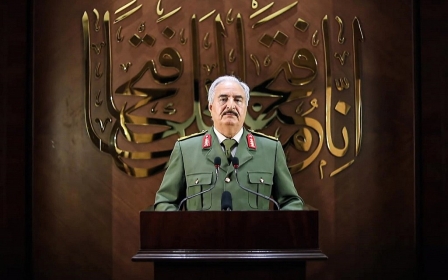Libya: Parliament in Tobruk calls for Egyptian intervention to counter Turkey
Libya's Tobruk-based parliament has called on Egypt to directly intervene in the country's conflict to push back against Turkey's support for the UN-recognised Government of National Accord (GNA) in Tripoli.
On Monday, the House of Representatives - based in the eastern port city of Tobruk - warned that Egyptian support was needed to counter what it described as a Turkish invasion and occupation.
In a resolution approved by the body, they called on "Egyptian armed forces to intervene to protect the national security of Libya and Egypt if they see an imminent danger to both our countries".
The new call underscores the growing stakes in Libya, where battle lines solidified earlier this month near the city of Sirte, after the GNA and Turkey drove the eastern-based Libyan National Army (LNA) back from a yearlong assault on Tripoli.
Libya has been divided since 2014 between the GNA in Tripoli and a rival eastern administration in Benghazi, where LNA commander Khalifa Haftar has dominated. There is also a separate House of Representatives based in Tripoli.
Any major new escalation could risk igniting a direct conflict in Libya among the foreign powers that have already poured in weapons and fighters in violation of a UN arms embargo. The LNA is backed by the United Arab Emirates, Russia and Egypt.
Egyptian President Abdel Fattah el-Sisi has already warned the army might enter Libya if the GNA and its Turkish allies renew an assault on Sirte, a central coastal city seen as the gateway to Libya's main oil export terminals.
Turkish Foreign Minister Mevlut Cavusoglu on Monday said in an interview with state broadcaster TRT Haber that the GNA wanted to drive Haftar's forces out of Sirte and Jufra, and had Ankara's support.
"There are preparations for an operation but we are trying the [negotiation] table. If there is no withdrawal, there is already a military preparation, they (GNA) will show all determination here," Cavusoglu said.
The foreign minister said Turkey and the GNA wanted Haftar to abide by the Libyan political agreement signed in 2015, which left the city of Sirte and the district of Jufra in the hands of the government.
“Of course the GNA doesn’t want a ceasefire without these places because Haftar is not sincere,” he added.
“He is trying to buy some time while making preparations to attack Misrata and Tripoli. And he doesn’t offer anything meaningful for the political path."
Control over oil, the main source of state revenue, has emerged as the biggest prize in the conflict, with eastern forces having imposed a blockade on production and exports since January.
Under international agreements, only the National Oil Corp (NOC) based in Tripoli has the right to produce and export oil, while revenues must flow to the Central Bank of Libya, also located in the capital.
On Friday international diplomacy led by the United Nations and the United States appeared to have ended the oil blockade when a first tanker was allowed to dock at Es Sider and load with oil from storage.
However, the LNA on Saturday said it was reimposing the blockade, a decision that the oil company NOC blamed on the United Arab Emirates. The UAE said it wanted a swift resumption of Libya oil exports but only if some conditions were met.
Middle East Eye propose une couverture et une analyse indépendantes et incomparables du Moyen-Orient, de l’Afrique du Nord et d’autres régions du monde. Pour en savoir plus sur la reprise de ce contenu et les frais qui s’appliquent, veuillez remplir ce formulaire [en anglais]. Pour en savoir plus sur MEE, cliquez ici [en anglais].





